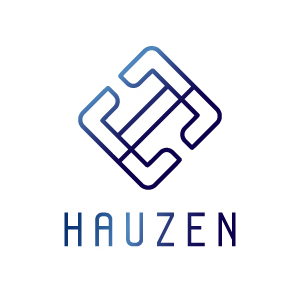In August 2021, the Securities and Futures Commission (“SFC”) introduced an investor identification regime (“HKIDR”) at trading level for the securities markets in Hong Kong. The SFC also introduced an over-the-counter securities transaction reporting regime (“OTCR”) for shares listed on the Stock Exchange of Hong Kong (“SEHK”) at the same time (collectively, the “Regimes”). These Regimes are of particular relevance to licensed corporations and registered institutions, as well as their clients. Read more on SFC >
HKIDR
Under the HKIDR, the Relevant Regulated Intermediary (“RRI”) refers to a licensed corporation (“LC”) or a registered institution (“RI”) which: –
(i) submits (or arranges to submit) for execution an on-exchange order;
(ii) carries out an off-exchange order; or
(iii) reports an off-exchange trade directly as an exchange participant to SEHK according to its rules, in connection with: –
a. carrying out proprietary trading; or
b. providing securities brokerage services for another person in respect of orders placed through an account opened and maintained for that person.
The HKIDR requirements apply to “direct clients” of an RRI. Direct client refers to the most immediate client of an RRI, which has placed or proposes to place an order through a securities account with that RRI.
The Broker-Client Assigned Number (“BCAN”) is a unique identification code in the format prescribed by SEHK, generated by a RRI in accordance with SEHK’s requirements. Under the HKIDR, RRIs will have to assign a BCAN to each of their clients and tag the BCAN to their clients’ securities orders (i.e. those reportable to HKEX under its rules) in securities listed or traded on HKEX’s trading system (“Reportable Transaction”). Note that each securities trading account is entitled to one BCAN only.
RRIs will also have to submit to SEHK’s data repository the up-to-date client identification data (“CID”) of relevant clients (i.e. their BCAN in the form of a mapping file (i.e. the “BCAN-CID Mapping File”)) of clients placing securities orders on SEHK.
The HKIDR is expected to be launched in the later part of Q4 in 2022, and the SFC recently published a Circular to Intermediaries to push through all the technical testing (i.e. the End-to-end Testing, “E2E Testing”), so that intermediaries’ systems can capture all the necessary information that needs to be submitted to the SFC in compliance with the HKIDR requirements. As such, RRIs were reminded to complete the mandatory E2E testing for the HKIDR before 5 August 2022 in order to proceed to market rehearsals for the implementation of the HKIDR.
OTCR
Separately, the RRI, under the OTCR, refers to a LC or a RI which: –
(i) carries out proprietary trading; or
(ii) provides securities brokerage services for another person in respect of orders placed through an
(iii) account opened and maintained for that person.
The OTCR regime will impose reporting obligations on RRIs when the RRI, whether acting as principal or agent, makes a transfer of shares (ordinary shares or REITs listed on the HKEX) that is effected by an OTC Securities Transaction in respect of which stamp duty is chargeable, unless:
(i) it is granted stamp duty relief (whether in full or in part) from the Inland Revenue Department or
(ii) the transfer of shares is made in accordance with the terms of a structured product or a derivative in Hong Kong; and
(iii) when there is a deposit to or withdrawal from the RRI, whether acting as principal or agent, of physical certificates of shares.
Purpose and Implications of the Regimes
The purpose of the Regimes is to facilitate the SFC’s surveillance of transactions. It is also broadly in line with the approach adopted in other jurisdictions, such as the U.S., the EU and Singapore. With an investor identification regime, the SFC can quickly obtain information about investors who placed orders. This will enhance SFC’s market surveillance, help maintain market integrity and strengthen investors protection. When investigating suspicious market activity, the SFC will use BCAN to access the identity information (i.e. CID) in the secured data repository to identify the investor.
Investors should be aware that the Regimes involve collection, use and transfer of personal data. The SFC recommends RRIs to adopt data privacy and security measures to safeguard the CID. To comply with the Regimes’ requirements, RRIs should always explain the purpose of such data collection before obtaining consent from clients. consequences if the clients fail to provide consent.
If a client’s consent cannot be obtained, RRIs should not submit the client’s BCAN or CID to SEHK’s data repository. The RRIs should only effect sell orders in respect of existing holdings of a listed security for that client.
Our Recommendations
Subject to the market’s completion of system testing and rehearsals, the HKIDR is expected to be launched in the later part of Q4 2022 at the earliest, and the OTCR in the later part of Q2 2023 at the earliest. We recommend that RRIs should: –
- Ensure system compatibility with the tagging of BCAN and reporting requirements under the HKIDR
- Revamp internal policies and procedures in order to comply with the HKIDR and OTCR regimes
- Enhance internal control system to ensure that client’s BCAN, CID and BCAN-CID Mapping Files are properly stored in system and protected against any unauthorised or accidental access to clients’ confidential information.







